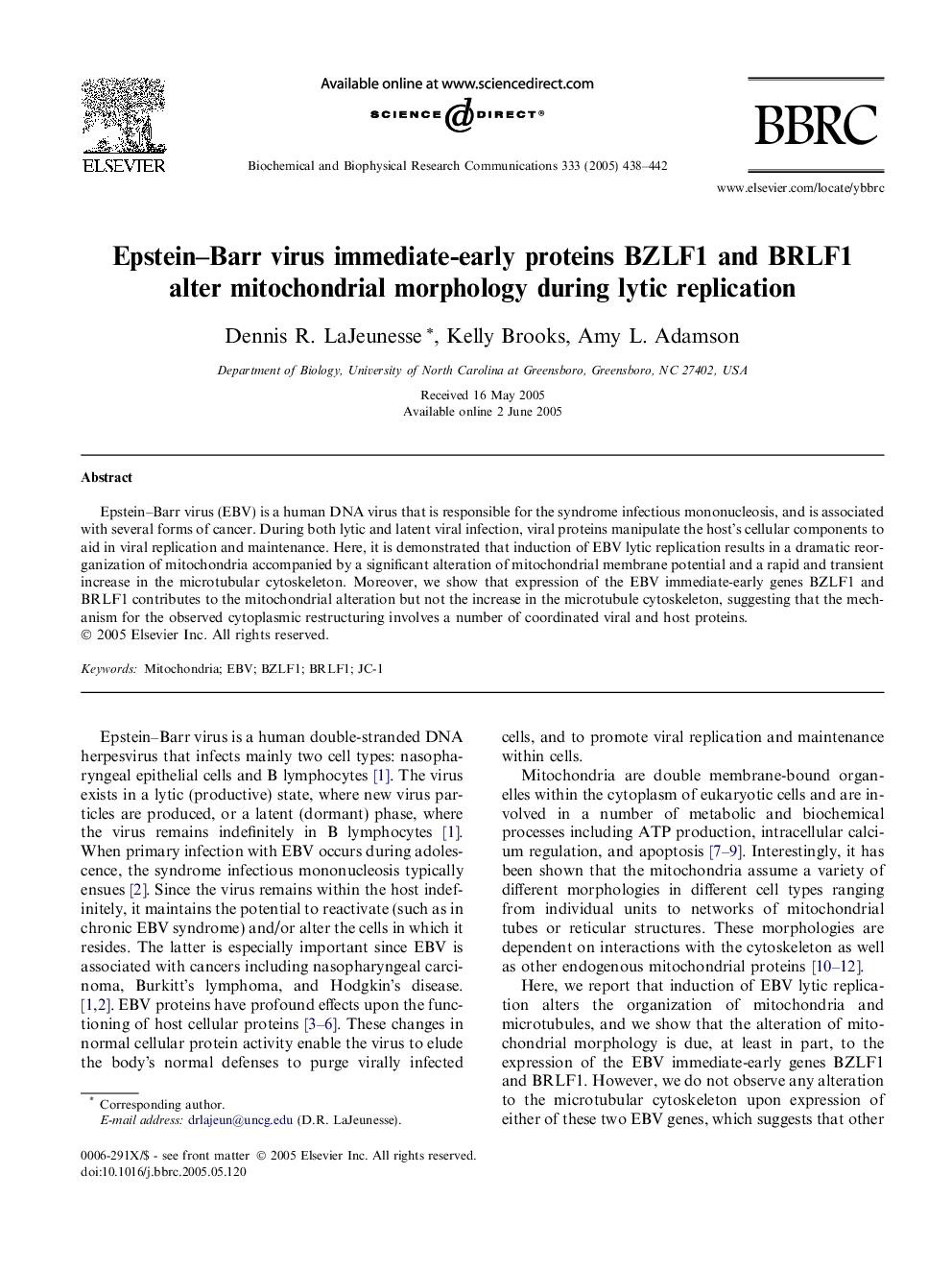| Article ID | Journal | Published Year | Pages | File Type |
|---|---|---|---|---|
| 10770072 | Biochemical and Biophysical Research Communications | 2005 | 5 Pages |
Abstract
Epstein-Barr virus (EBV) is a human DNA virus that is responsible for the syndrome infectious mononucleosis, and is associated with several forms of cancer. During both lytic and latent viral infection, viral proteins manipulate the host's cellular components to aid in viral replication and maintenance. Here, it is demonstrated that induction of EBV lytic replication results in a dramatic reorganization of mitochondria accompanied by a significant alteration of mitochondrial membrane potential and a rapid and transient increase in the microtubular cytoskeleton. Moreover, we show that expression of the EBV immediate-early genes BZLF1 and BRLF1 contributes to the mitochondrial alteration but not the increase in the microtubule cytoskeleton, suggesting that the mechanism for the observed cytoplasmic restructuring involves a number of coordinated viral and host proteins.
Keywords
Related Topics
Life Sciences
Biochemistry, Genetics and Molecular Biology
Biochemistry
Authors
Dennis R. LaJeunesse, Kelly Brooks, Amy L. Adamson,
